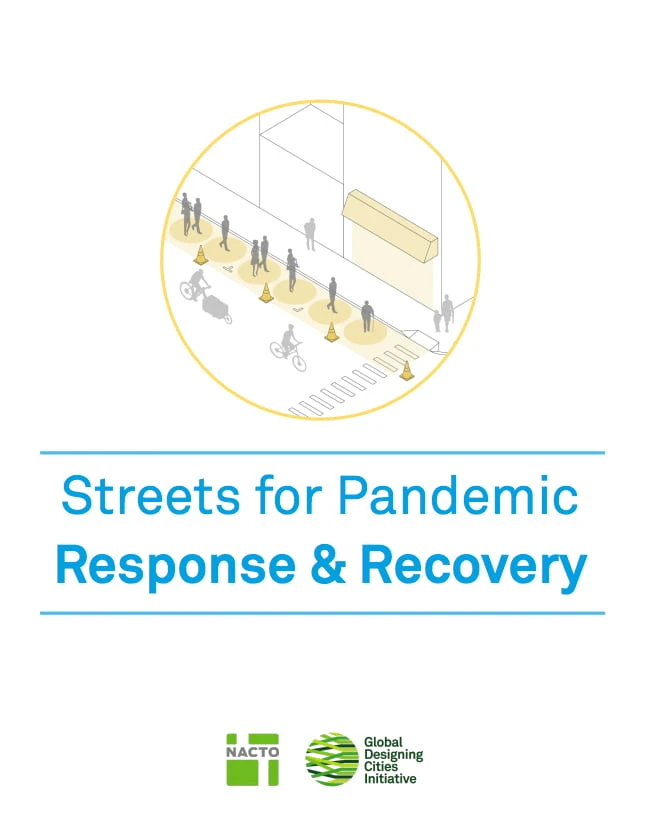Resources
Economic Development Tactical Guides
These straightforward, how-to guides provide cities with a concise set of recommended actions backed by practical case studies, step-by-step actions, and plug-and-play tools to accelerate implementation.
Guidebooks
Accelerating Climate Action in Cities
In 2020, Bloomberg Associates, the Global Covenant of Mayors, and the World Resources Institute launched a global scan of climate action in cities. Through interviews with 58 cities, a survey of 300 more, and a review of 600+ climate tools, the team explored the biggest challenges cities face in accelerating climate action and identified solutions to help overcome them. The report offers recommendations as to how city leaders, policymakers, and non-governmental partners can unleash the full power of city governments to reduce carbon emissions.
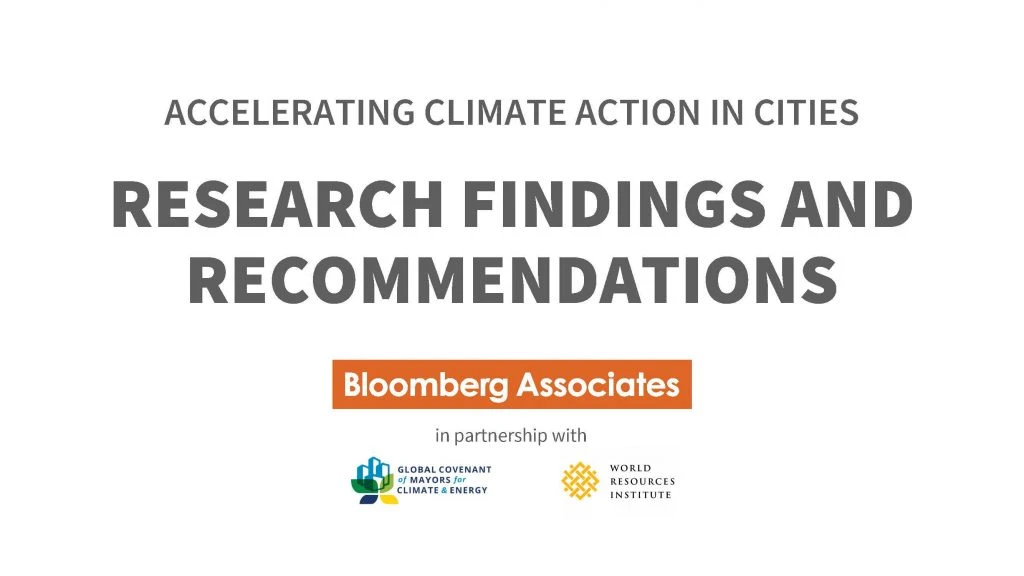
Arts Data in the Public Sector
Arts Data in the Public Sector offers insights and practical tips for cities to collect and use data about their arts and cultural sectors. Through best practices and case studies, the guide aims to help arts agencies and city leaders show measurable impact, identify priority policy areas, and establish more equitable and inclusive practices to promote access to the arts across communities.
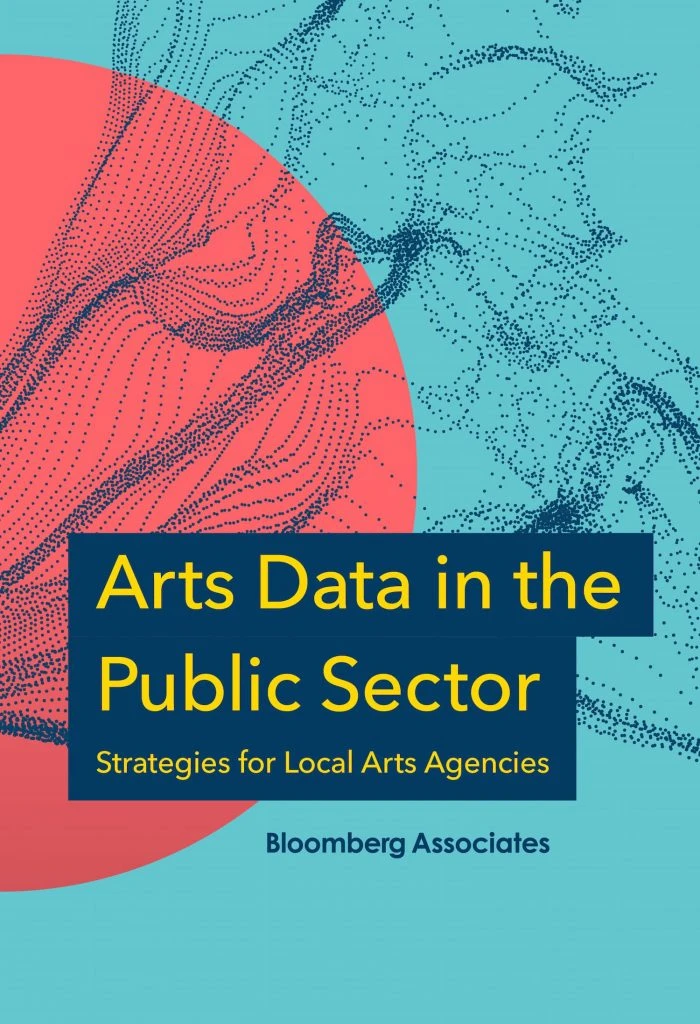
Asphalt Art Guide
The Bloomberg Associates Asphalt Art Guide features successful plaza and roadway art activations around the world, as well as key steps and tips for developing such projects. By sharing lessons learned from Asheville to Athens, Bogota to Boston, we hope to help city agencies, community organizations and artists be most efficient in championing projects that deliver safer, more beautiful streetscapes.
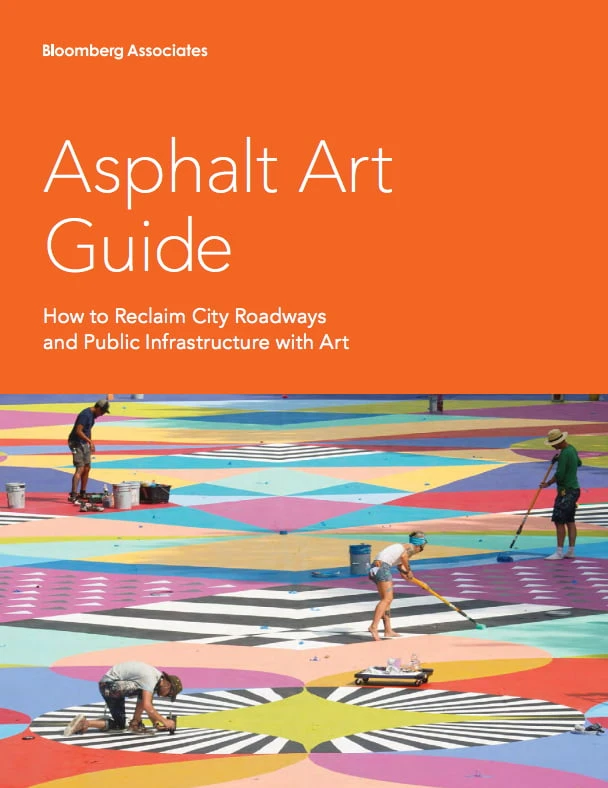
Cross-Sector Collaboration: Lessons for City Leaders
This guide for city leaders outlines some of the key components needed to successfully administer and sustain strategic partnerships. The Collaborative Cities guide provides general best practices that apply across municipalities, while also offering guidance on how city leaders can adapt the approaches to their own challenges and circumstances. It highlights the efforts of mayors and cross-sector practitioners with unique experience and insights, and serves as a playbook for local leaders looking to build or strengthen partnerships.
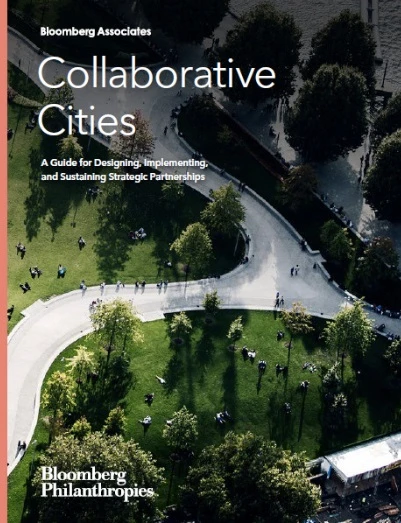
Digital City Tools
Bloomberg Associates’ Digital City Tools reports highlight the innovative ways city governments around the world are using technology to overcome challenges and drive progress. Each report in the series is the product of an information exchange among global cities about the technologies they use, how they are implementing them, and the impact they have had.
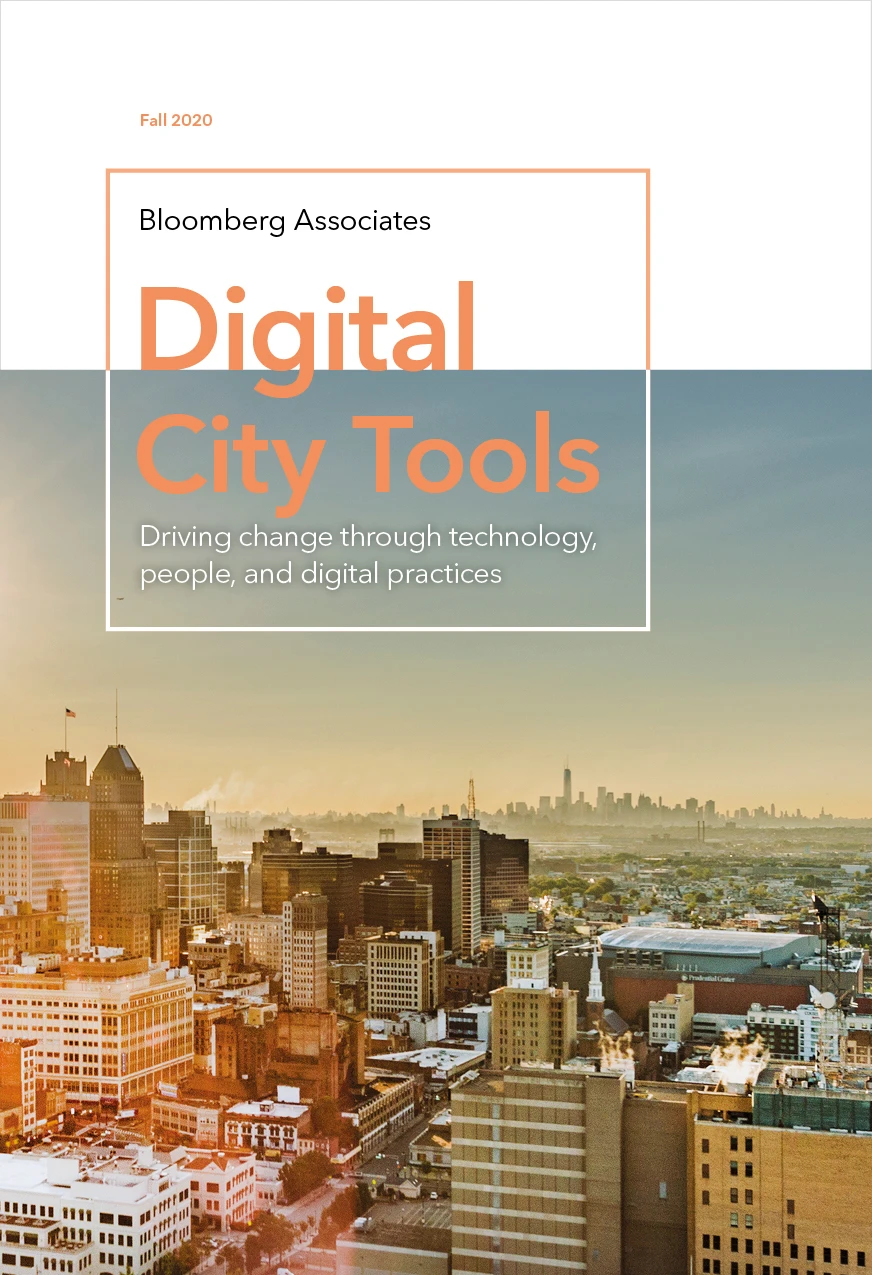
Enhancing Outdoor Spaces for Extreme Heat
Bloomberg Associates has worked with a variety of cities to transform public spaces to mitigate the impacts of heatwaves and rising temperatures. A particular focus has been common outdoor areas at social housing to provide cool spaces where people live. This “Lookbook” provides a range of creative solutions from around the world that maximize cooling impacts, respond to the needs of residents, and promote social interaction and key principles to guide this work. These examples are intended to present lower-cost interventions that can be rapidly deployed in a variety of spaces and scales.
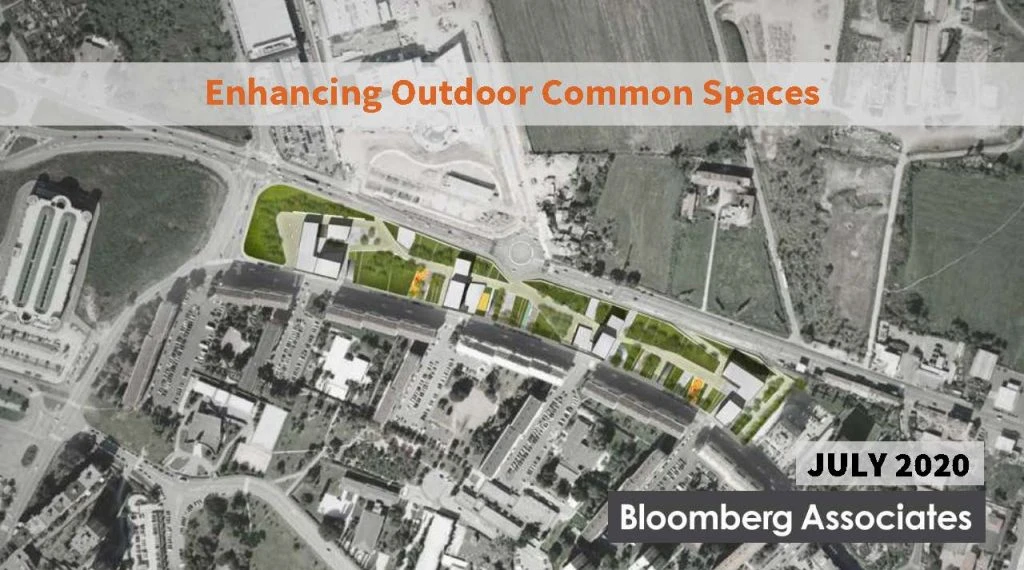
Global Cities Respond to Migrant Homelessness: Immediate and Long-Term Considerations
Mayors often find themselves responsible for managing the immediate humanitarian needs of new arrivals, including food, shelter, and medical care. As such, they must adopt both immediate and long-term strategies to ensure that their cities can remain resilient and continue to function efficiently. This paper examines the critical role cities must play in meeting these unplanned increases in migration, especially when national-level support is delayed or insufficient.

Team Up Guidebook
Team Up is a unique initiative that seamlessly bridges the world of sports and education. This initiative provides under-resourced youth with the knowledge, experience, and motivation to pursue higher education, while simultaneously developing a myriad of skills applicable to any future career. The Team Up Guidebook provides organizations with the tools needed to determine the utility of Team Up, how-to instructions for all stakeholders, and actionable steps for the implementation and management of the program.
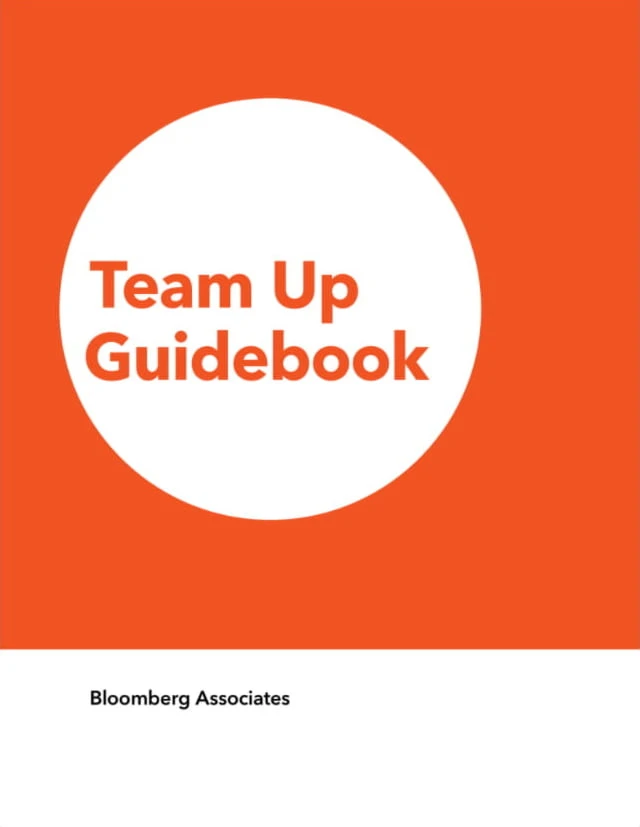
Quantifying the Impact of the Inflation Reduction Act on City Climate Actions and Goals: Methodology for Cities
This document provides U.S. cities with step-by-step guidance to analyze the potential impact of key Inflation Reduction Act (IRA) programs to support and accelerate their climate action goals, with examples from the City of Chicago’s approach to conducting this analysis.
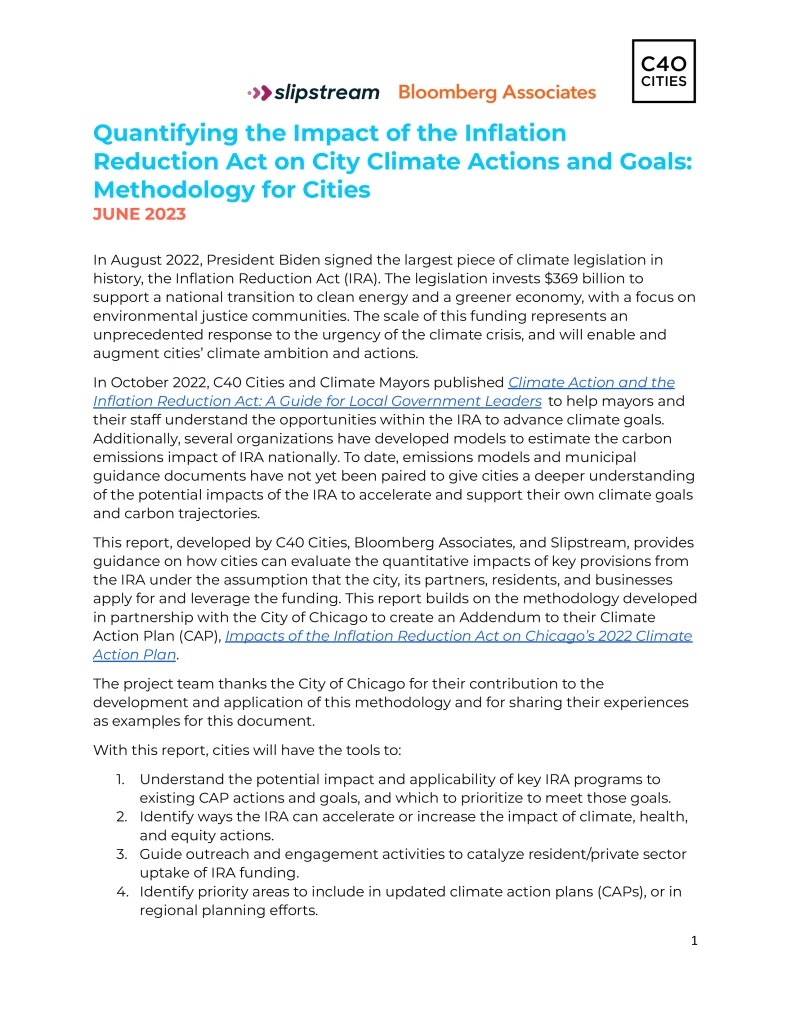
City-Specific Publications
Atlanta Economic Mobility, Recovery & Resiliency Plan
Bloomberg Associates worked with the City of Atlanta and Invest Atlanta to develop and implement Mayor Keisha Lance Bottoms’ One Atlanta vision to achieve better economic and social outcomes for Atlanta residents, particularly Black and Brown communities where low household income and high rates of poverty and unemployment persist.
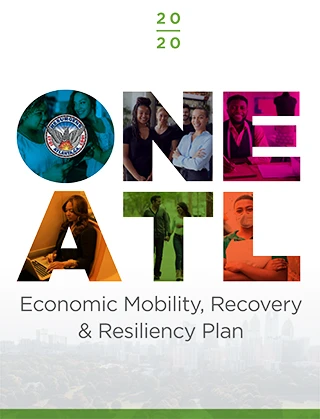
Chicago Climate Action Plan Addendum: Impacts of the Inflation Reduction Act on Chicago’s 2022 Climate Action Plan
Bloomberg Associates partnered with the City of Chicago, C40, and Slipstream to conduct a first-of-its-kind assessment of the potential impacts of the historic Inflation Reduction Act (IRA) on Chicago’s 2022 Climate Action Plan decarbonization targets. This analysis looks at how federal funding can accelerate Chicago’s emissions reduction trajectory or support existing targets, enabling the City to dedicate its own resources to ensuring an equitable net zero transition that benefits all Chicago communities. Based on this approach, these partners also developed a national methodology to guide other cities in conducting a similar analysis (see Guidebooks).
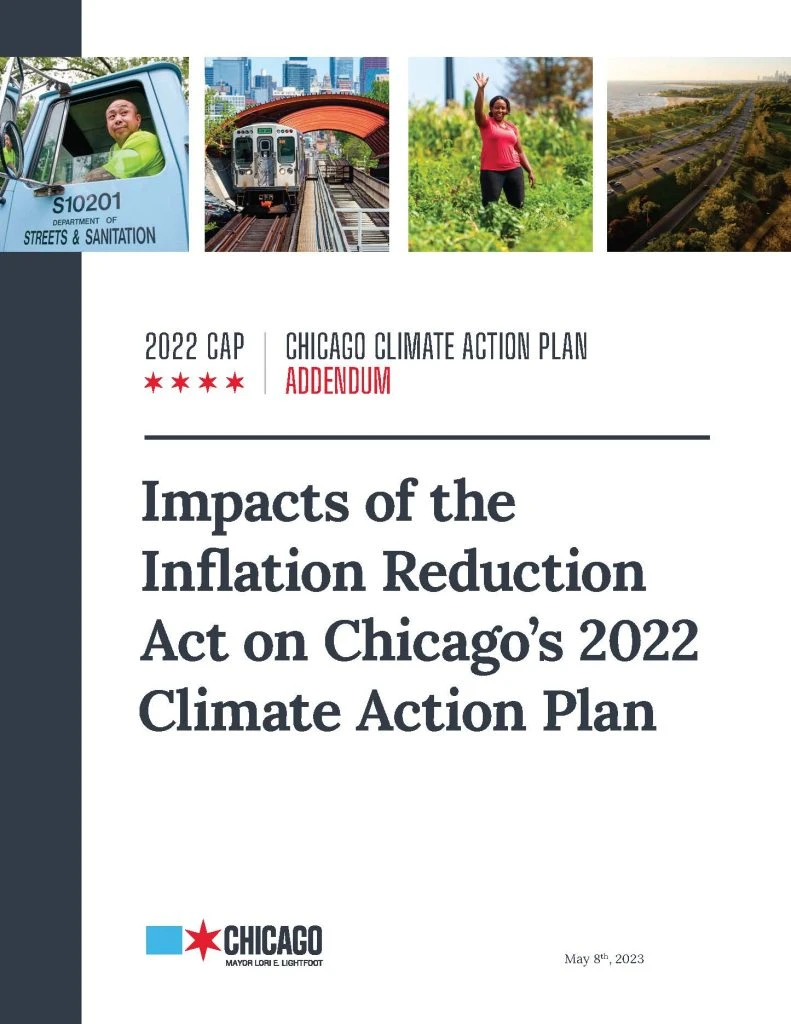
City Tools: London
City Tools: London is a report and interactive dashboard that maps technologies, contracts and skills across London’s boroughs. This is a starting point to enable possible collaborations between local authorities, identify opportunities for new entrants and innovators into the government technology market, and drive cost savings by coordinating contracts and leveraging boroughs’ collective bargaining power.
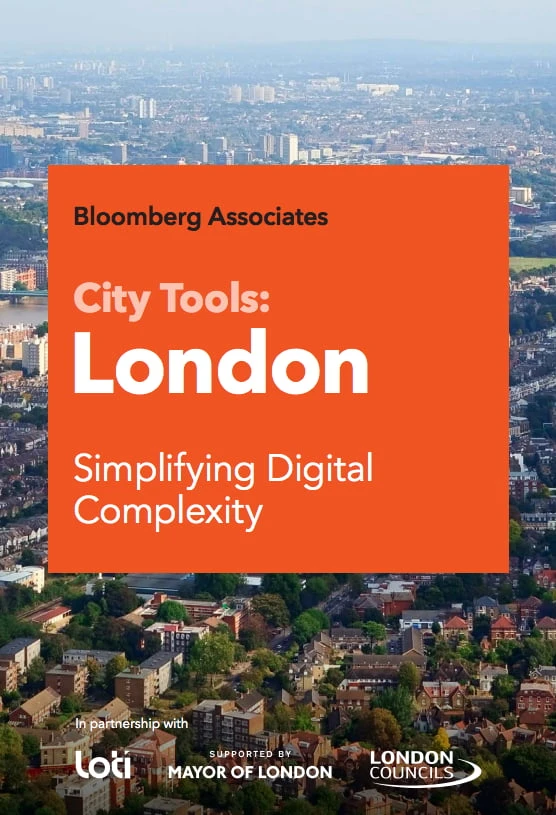
Great Streets for Los Angeles
Strategic plan for a newly reimagined transportation department.
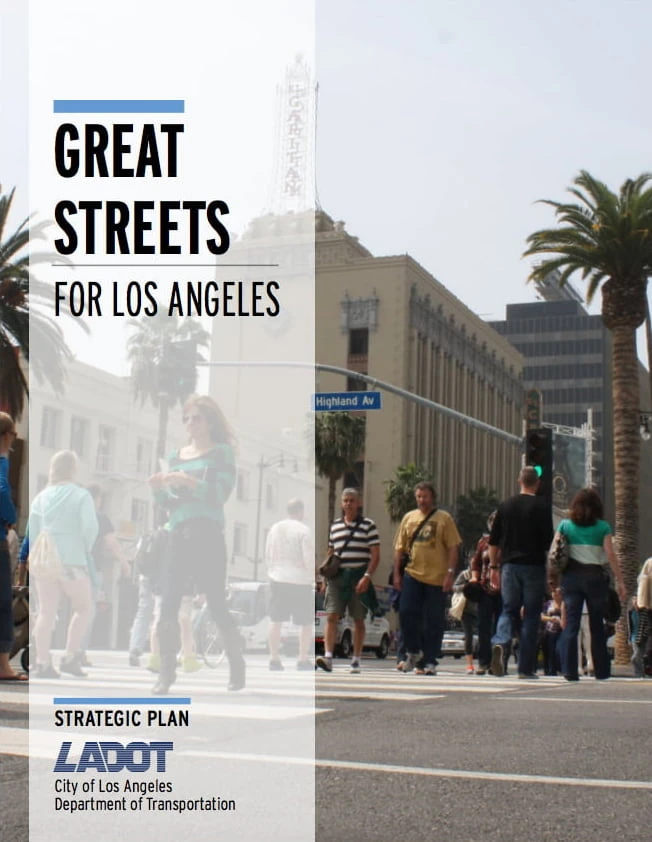
Houston Complete Communities
Complete Communities is Mayor Sylvester Turner’s plan to revitalize Houston’s most under-resourced neighborhoods. The mission of Complete Communities is to create a more equitable and prosperous city for all Houstonians by working with local stakeholders and cross-sector partners to improve designated neighborhoods. The Action Plan outlines the vision and plan for each Complete Community neighborhood, as generated by a robust community engagement effort.

Milan Welcome Guide
The Milan Welcome Guide is the city’s first resource that compiles critical information for new arrivals to the city and helps them navigate the process of establishing residency. Produced in 5 languages including English, Spanish, Chinese, and Arabic, the guide aims to promote Milan’s openness and diversity.
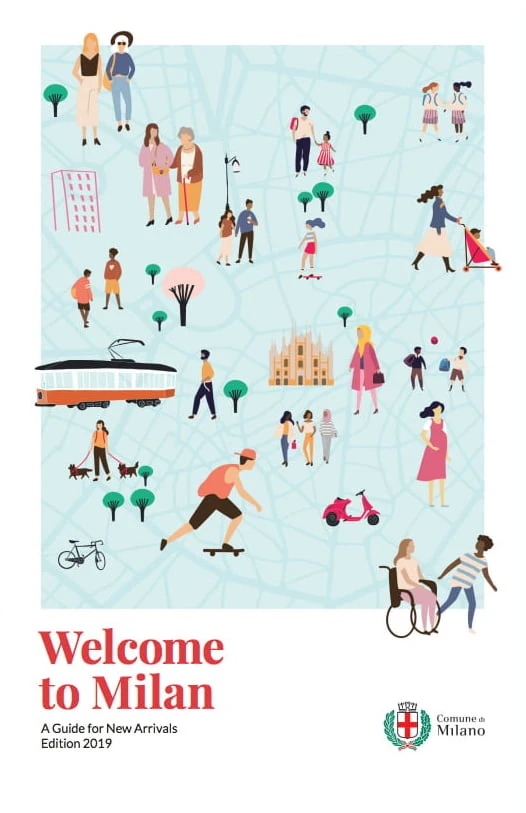
Newark Equitable Economic Recovery Plan
Bloomberg Associates worked with the City of Newark to develop and implement Mayor Ras J. Baraka’s Equitable Economic Recovery Plan focused on jobs, development, neighborhood investment, and small business recovery. The plan served as a roadmap for deploying the City’s American Recovery Plan Act (ARPA) funding to address the economic impact of COVID-19 in Newark.
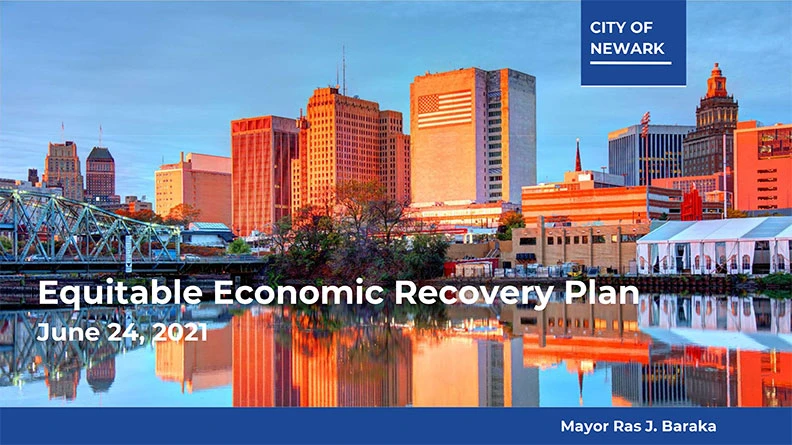
Oakland Economic Development Strategic Plan
The purpose of the Economic Development Strategy is to set both immediate and long-term goals and priorities to grow Oakland’s economy while keeping Oakland a unique, special place to live and do business. Our goal is to make Oakland an easy, efficient, and prosperous place to do business, and to reduce racial disparities and help all Oaklanders achieve economic security.
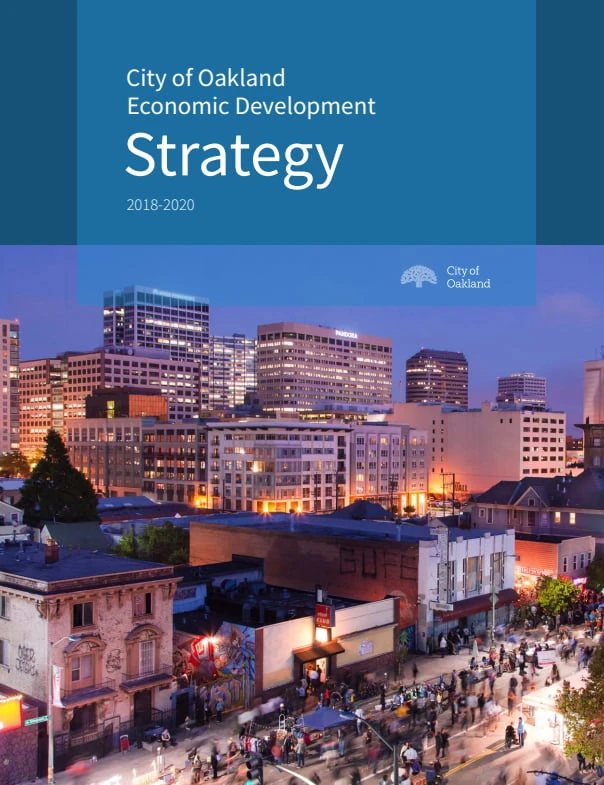
One Atlanta: Housing Affordability Action Plan
The One Atlanta: Housing Affordability Action Plan outlines a bold vision to provide a pathway to affordable and equitable housing opportunities for all who desire to call Atlanta home.
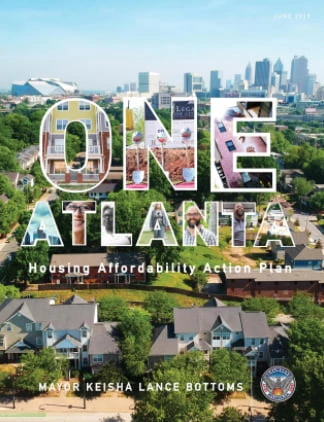
Playbook to Promote the Baltimore Region to Businesses and Talent
Bloomberg Associates Economic Development team designed a playbook to help Baltimore’s leaders attract investment and talent by providing case-tested programs and strategies that can be pursued immediately. The playbook includes 17 recommended actions, grouped into two categories. They are backed by practical case studies from across the US and elsewhere, step-by-step guides, and resources to accelerate implementation.
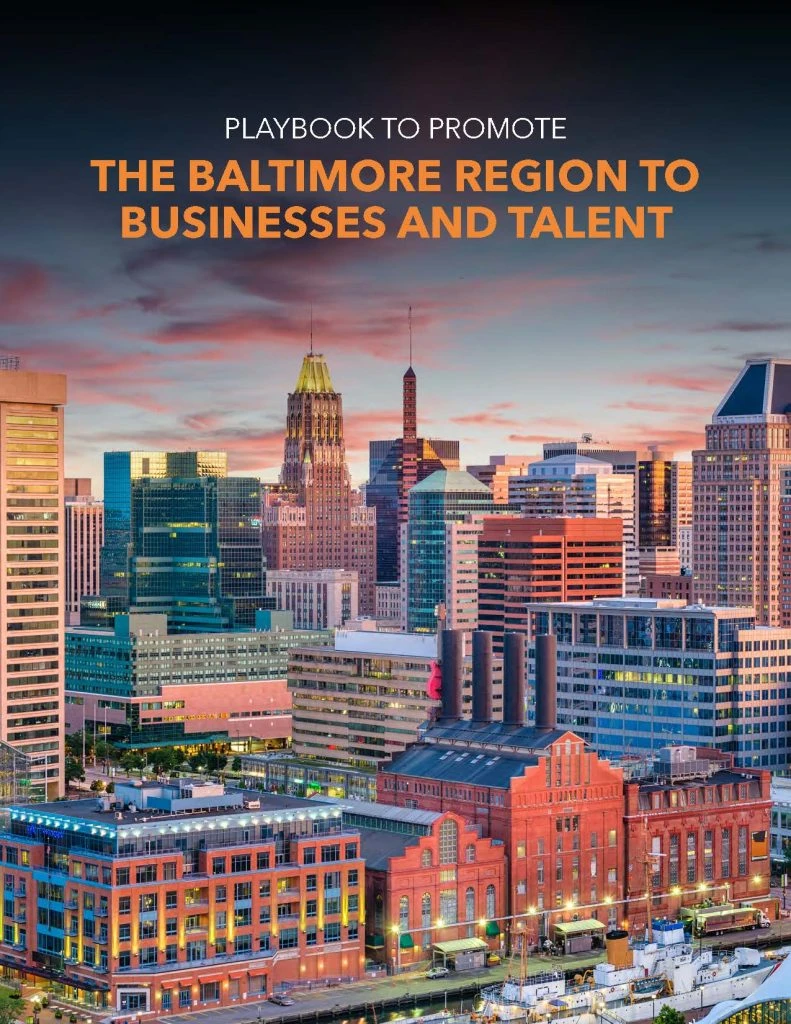
COVID-19 Resources for Cities
Advisory Council for the Reopening of the City of Atlanta
The Report provides short-, mid-, and long-term recommendations for a deliberate reopening informed by public health guidance and best practices, including from Vital Strategies’ Resolve to Save Lives initiative.
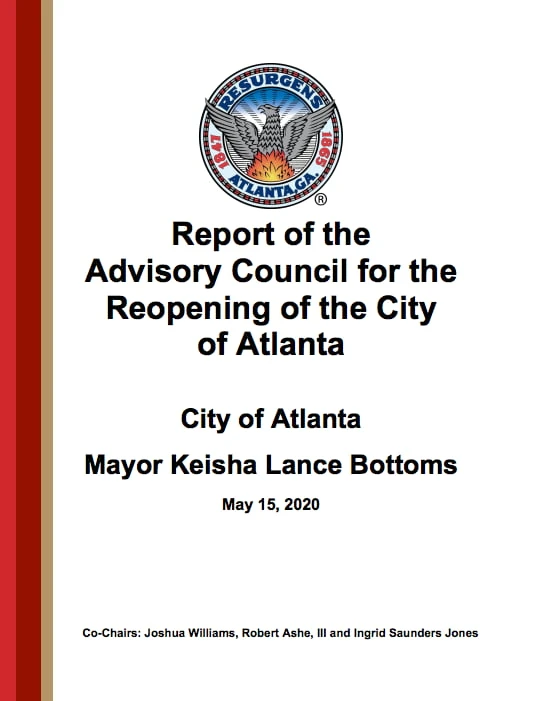
Crisis Communications Module
The COVID-19 Crisis Communications Module provides insights on best practices and implementation recommendations around internal crisis response, press relations, social media and digital platforms—along with accompanying templates and tools that can be customized to help more effectively engage with residents.

Municipal Resource FAQ
The Municipal Resource FAQ provides detailed answers to questions posed by city leaders during and after our April 7 webinar, the first in the series, offering additional in-depth guidance for cities as they operationalize their emergency response to COVID-19.
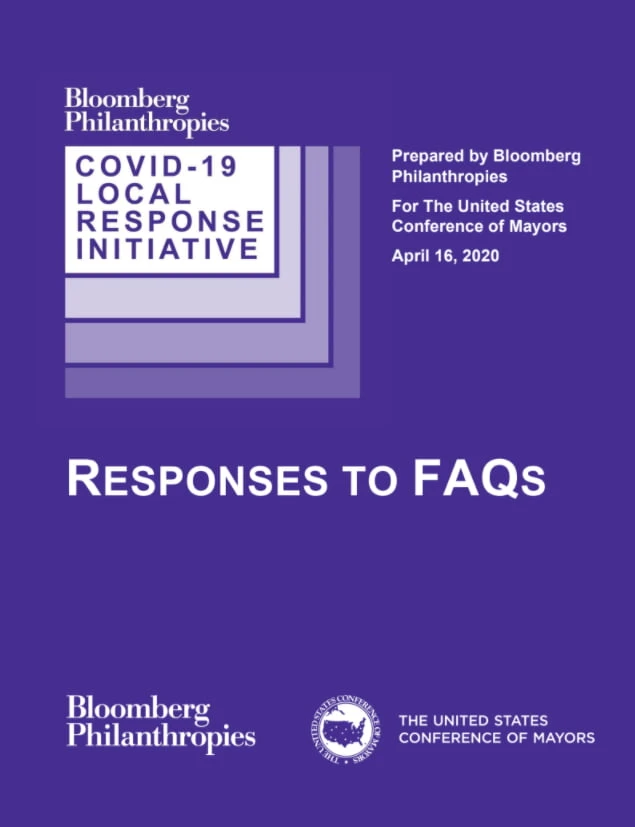
Reopening the Cultural Sector in U.S. Cities
This provides information on the importance of the cultural sector in the United States and insights into practices being implemented as organizations plan their reopening.
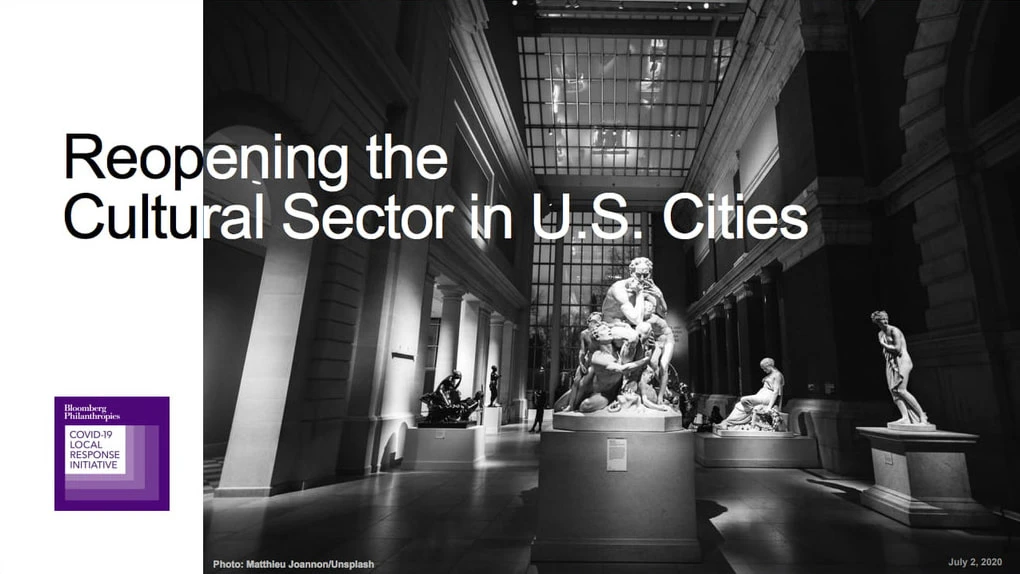
Streets For Pandemic Response and Recovery
Streets for Pandemic Response and Recovery compiles emerging practices from around the world and includes implementation resources for cities and their partners. Recognizing the rapidly changing nature of this pandemic, Streets for Pandemic Response and Recovery will be revised and expanded to include new strategies, address changing conditions, and provide the best possible information on each design practice.
